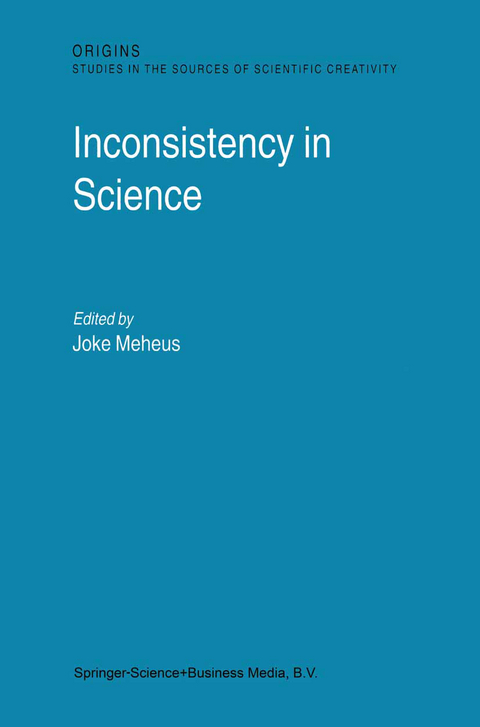
Inconsistency in Science
Seiten
2010
|
Softcover reprint of hardcover 1st ed. 2002
Springer (Verlag)
978-90-481-6023-5 (ISBN)
Springer (Verlag)
978-90-481-6023-5 (ISBN)
Central to this change were the advent of paraconsistent logics, the shift in attention from finished theories to construction processes, and the recognition that most scientific theories were at some point either internally inconsistent or incompatible with other accepted findings. Is it ever rational to accept an inconsistent theory?
For centuries, inconsistencies were seen as a hindrance to good reasoning, and their role in the sciences was ignored. In recent years, however, logicians as well as philosophers and historians have showed a growing interest in the matter. Central to this change were the advent of paraconsistent logics, the shift in attention from finished theories to construction processes, and the recognition that most scientific theories were at some point either internally inconsistent or incompatible with other accepted findings. The new interest gave rise to important questions. How is `logical anarchy' avoided? Is it ever rational to accept an inconsistent theory? In what sense, if any, can inconsistent theories be considered as true?
The present collection of papers is the first to deal with this kind of questions. It contains case studies as well as philosophical analyses, and presents an excellent overview of the different approaches in the domain.
For centuries, inconsistencies were seen as a hindrance to good reasoning, and their role in the sciences was ignored. In recent years, however, logicians as well as philosophers and historians have showed a growing interest in the matter. Central to this change were the advent of paraconsistent logics, the shift in attention from finished theories to construction processes, and the recognition that most scientific theories were at some point either internally inconsistent or incompatible with other accepted findings. The new interest gave rise to important questions. How is `logical anarchy' avoided? Is it ever rational to accept an inconsistent theory? In what sense, if any, can inconsistent theories be considered as true?
The present collection of papers is the first to deal with this kind of questions. It contains case studies as well as philosophical analyses, and presents an excellent overview of the different approaches in the domain.
From Copernicus to Ptolemy: Inconsistency and Method.- Inconsistent Reasoning toward Consistent Theories.- Inconsistencies in the History of Mathematics.- Mathematical Change and Inconsistency.- Approximate Truth.- Inconsistency in Science: A Partial Perspective.- Inconsistency and the Empirical Sciences.- In Defence of a Programme for Handling Inconsistencies.- How to Reason Sensibly yet Naturally from Inconsistencies.- Why the Logic of Explanation is Inconsistency-adaptive.- A Paradox in Newtonian Gravitation Theory II.- Inconsistency, Generic Modeling, and Conceptual Change in Science.
| Erscheint lt. Verlag | 7.12.2010 |
|---|---|
| Reihe/Serie | Origins: Studies in the Sources of Scientific Creativity ; 2 |
| Zusatzinfo | IX, 223 p. |
| Verlagsort | Dordrecht |
| Sprache | englisch |
| Maße | 155 x 235 mm |
| Themenwelt | Geisteswissenschaften ► Geschichte |
| Geisteswissenschaften ► Philosophie ► Allgemeines / Lexika | |
| Geisteswissenschaften ► Philosophie ► Logik | |
| Naturwissenschaften | |
| Sozialwissenschaften | |
| ISBN-10 | 90-481-6023-5 / 9048160235 |
| ISBN-13 | 978-90-481-6023-5 / 9789048160235 |
| Zustand | Neuware |
| Informationen gemäß Produktsicherheitsverordnung (GPSR) | |
| Haben Sie eine Frage zum Produkt? |
Mehr entdecken
aus dem Bereich
aus dem Bereich
die letzten Jahre der Philosophie und der Beginn einer neuen …
Buch | Hardcover (2024)
Klett-Cotta (Verlag)
28,00 €
Konfuzianismus, Daoismus, Buddhismus
Buch | Softcover (2023)
C.H.Beck (Verlag)
18,00 €


